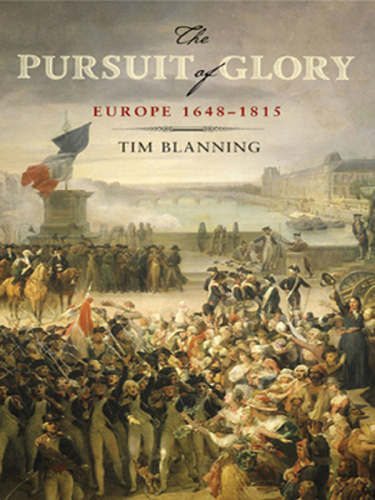
The Pursuit of Glory
The Five Revolutions that Made Modern Europe: 1648-1815
کتاب های مرتبط
- اطلاعات
- نقد و بررسی
- دیدگاه کاربران
نقد و بررسی

Starred review from March 26, 2007
This new volume in the Penguin History of Europe series is a wonderful achievement, particularly so considering the mammoth amount of specialist material that required synthesizing into digestible portions for general consumption. Blanning, professor of modern history at the University of Cambridge, has performed the miracle of balancing and blending traditional political and diplomatic accounts with the newer fields of social, economic and intellectual history. A prime example of this is the author's treatment of the impact of the new "public sphere." As people discoursed through coffeehouses, Masonic organizations or periodicals, "a new source of authority emerged to challenge the opinion-makers of the old regime: public opinion." Countries where this public sphere was left free, as in Britain or the Dutch Republic, tended to be more politically stable than, say, France, where suppression ended in bloody revolution. Blanning narrates the story of Europe from the end of the Thirty Years' War to the end of the Napoleonic wars, when secularization and the primacy of state sovereignty were recognized as the key attributes of the coming era. What the Europeans would eventually get was the secular, martial religion of nationalism. But this is the subject for a subsequent volume—which will be hard-pressed to match this splendid one.

April 15, 2007
Blanning (modern history, Cambridge) gives us a broad approach to European history, covering not only the traditional topics of war, diplomacy, and kings but also other interesting issues, such as transportation, marriage, law, and recreation. Since he writes well, making complex issues understandable and ably conveying what it was like to live during these epochs, this book will be a good resource for undergraduates and interested lay readers. Graduate students likewise will find Blanning's extensive discussions of historiography rewarding. The book does, however, suffer from a little "high history" during which the focus on everyday life becomes hard to find. For example, when Banning covers the Napoleonic Wars, he mentions little of how ordinary people were affected. He does, however, indicate the extent and depth of material confronting a historian (e.g., with a suggested reading section) and overall succeeds in conveying both social topics and the topics of traditional history. Recommended for larger public and all academic libraries.Bryan Craig, MLS, Nellysford, VA
Copyright 2007 Library Journal, LLC Used with permission.

























دیدگاه کاربران